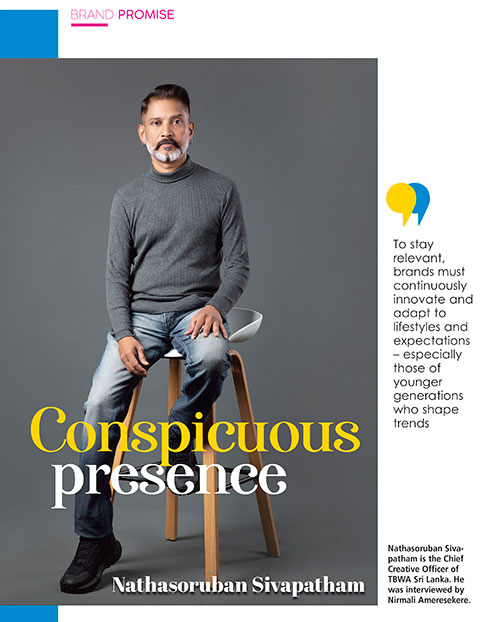BRANDS EXPOSITION
“The art of marketing is the art of brand building”
– Philip Kotler
MARKETING GURUS HELP CRACK THE CODE
Tamara Rebeira draws on the insights of global marketing gurus to master the art of branding

The significance of branding in business cannot be overstated. Beyond mere logos and colours, a brand embodies the very essence of a business; it’s an identity and personality captured together.
And in today’s business landscape, branding holds greater prominence than ever before.
Social media has exposed consumers to a constant stream of new brands, offering them an abundance of choices. Branding stands as a cornerstone and vital element that transcends mere products or services – it represents identity, meaning and value combined.
Philip Kotler, a titan in the realm of marketing, has contributed profoundly to our understanding of branding through his works.
Referred to as the ‘father of modern marketing,’ Kotler underscores the significance of branding in his book Marketing Management. He emphasises that a brand is not merely a name or logo but an example of a company’s promise to its customers. It’s the complete customer experience – emotional, rational and cultural aspects.
Kotler asserts that “the art of marketing is the art of brand building. If you are not a brand, you are a commodity. Then price is everything and the low-cost producer is the only winner.”
Furthermore, he explains the process of brand building, which is about establishing a unique identity, fostering awareness and nurturing loyalty. Kotler highlights the role of consistent messaging and imagery, in reinforcing brand identity and differentiating it from competitors.
In addition, his insights underscore the strategic nature of branding, emphasising its role in driving customer preferences and building long-term relationships.
In Principles of Marketing, he dives deeper into brand equity by pointing to the value that a brand adds to a product or service. Kotler cites four components of brand equity – viz. brand loyalty, brand awareness, perceived quality and brand associations.
According to him, cultivating strong brand equity is essential for sustaining a competitive advantage and commanding premium pricing.
Kevin Lane Keller – the acclaimed author of Strategic Brand Management – captures the essence of branding by asserting that a successful brand serves as the cornerstone of a thriving business.
He stresses the pivotal role of branding as the primary catalyst for business success: “A successful brand is the driving force behind every successful business.”
Moreover, David A. Aaker’s Building Strong Brands explores the intricacies of brand identity and personality, by focussing on the role of brand storytelling in creating emotional connections with consumers.
He notes that successful brands evoke feelings, values and aspirations that align with their target audience.
Sally Hogshead’s ‘Fascinate: Your 7 Triggers to Persuasion and Captivation’ offers a fresh perspective on branding by exploring the concept of fascination. She contends that captivating brands are those that trigger specific emotional and psychological responses, captivating consumers’ attention and fostering brand loyalty.
In today’s dynamic marketplace, digital technologies have revolutionised branding, which presents both opportunities and challenges. Renowned entrepreneur and the founder of Virgin Group Sir Richard Branson once emphasised the essence of branding, highlighting the need for unwavering commitment.
According to Branson, “branding demands commitment; commitment to continual reinvention; striking chords with people to stir their emotions; and commitment to imagination.”
“It is easy to be cynical about such things; much harder to be successful,” he quips.
In an increasingly complex and competitive landscape, the principles of branding remain steadfast, guiding businesses that strive to carve out their identities and resonate with consumers. Drawing from the insights of Kotler & Co, the nature of branding and its impact on shaping perceptions, driving preferences and establishing enduring relationships is evident.
So in a nutshell, branding is the art of creating and nurturing connections, emotions and perceptions. As Kotler aptly puts it: “Branding is not just about being seen as better than the competition. It’s about being seen as the only solution to your audience’s problem.”





